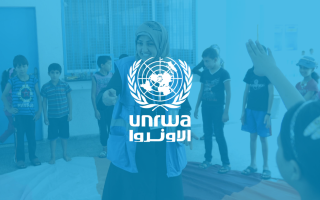Partnerships, Financing and Resource Mobilization for Sustainable Development
As the United Nations(UN) Development System is transforming to overcome emerging crises to stay on course to deliver on the promise of the 2030 Agenda, the evolving partnerships, financing and resource mobilization landscape becomes increasingly relevant.
This engaging course is designed to equip UN staff with the knowledge and skills to navigate this transformation through instructor-led expert sessions, insightful peer learning, and practical exploration of tools and frameworks.
The 2030 Agenda for Sustainable Development is ambitious in its scope and aims at a fundamental transformation of society. This transformation requires changes in mindsets, lifestyles and behaviours at a whole-of-society level. Its implementation requires financing to the tune of several trillions of dollars, while current levels of Official Development Assistance stand at a mere 3-4 percent of this requirement. This requires tapping into other sources of finance and emphasizes the need to leverage ODA more effectively to channel other global financial flows and private-sector commitment towards sustainable development to accomplish the transformation.
There is an increasing recognition within the UN that the transformation will require a radical transformation in how we think and work. The challenge before us is equally to understand that working collaboratively within the UN system and engaging with diverse stakeholders is imperative to stay on course to implement the 2030 Agenda.
This challenge represents an opportunity for the UN to play a catalytic role in supporting the mobilization of finance for sustainable development in a joint and strategic approach.
This course is designed to equip UN staff with the knowledge and skills to make this transformation a reality by leveraging the power of partnerships and exploring innovative financing models and strategic approaches to resource mobilization.
Upon successful completion of this course, participants will be able to:
- Develop an awareness of the latest trends in the financing of the UN Development System, especially in view of its reform and repositioning process.
- Understand how unlocking global financial flows, including public, private, national, and international sources, can be strategically leveraged for sustainable development.
- Utilize tools to approach cross-sector sector partnerships that create shared value while mitigating reputational risks.
- Understand the elements of successful resource mobilization strategies and deploy them in their work.
This face-to-face course combines inputs and lectures by high-level subject matter experts with opportunities for knowledge sharing and participatory exercises. Participants are led to apply their learning through application-oriented learning methodologies such as case studies, collaborative group exercises, team discussions and dialogues with the speakers.
Day 1: The UN Development System and its Financing in a Changing World
Day 2: Bridging the Finance Gap for Sustainable Development & Climate Finance.
Day 3: Due Diligence, Stakeholder-Mapping, and Partnership-Building.
Day 4: Leadership Skills & Innovative Resource Mobilization Strategies
Day 5: How it all fits together and action planning (half-day).
UN personnel: managers, specialists and officers working at country and regional level with partnerships, innovative financing, and resource mobilization.
The course fee of USD 3,500 covers the following:
- Four days and a half of training and learning, which includes presentations, interactive exercises, and group work activities.
- Exclusive access to UNSSC's online social learning environment with training and supporting background materials and the opportunity to network and stay connected with colleagues.
- All course materials, resources and contacts.
Participants are expected to cover all costs for travel to Bonn (Germany), lodging, meals, and any other costs related to their attendance in the course.
Note: It is important to note that registering for the course does not guarantee selection. Please do not book flight tickets or accommodation without receiving a confirmation of selection into the course.



